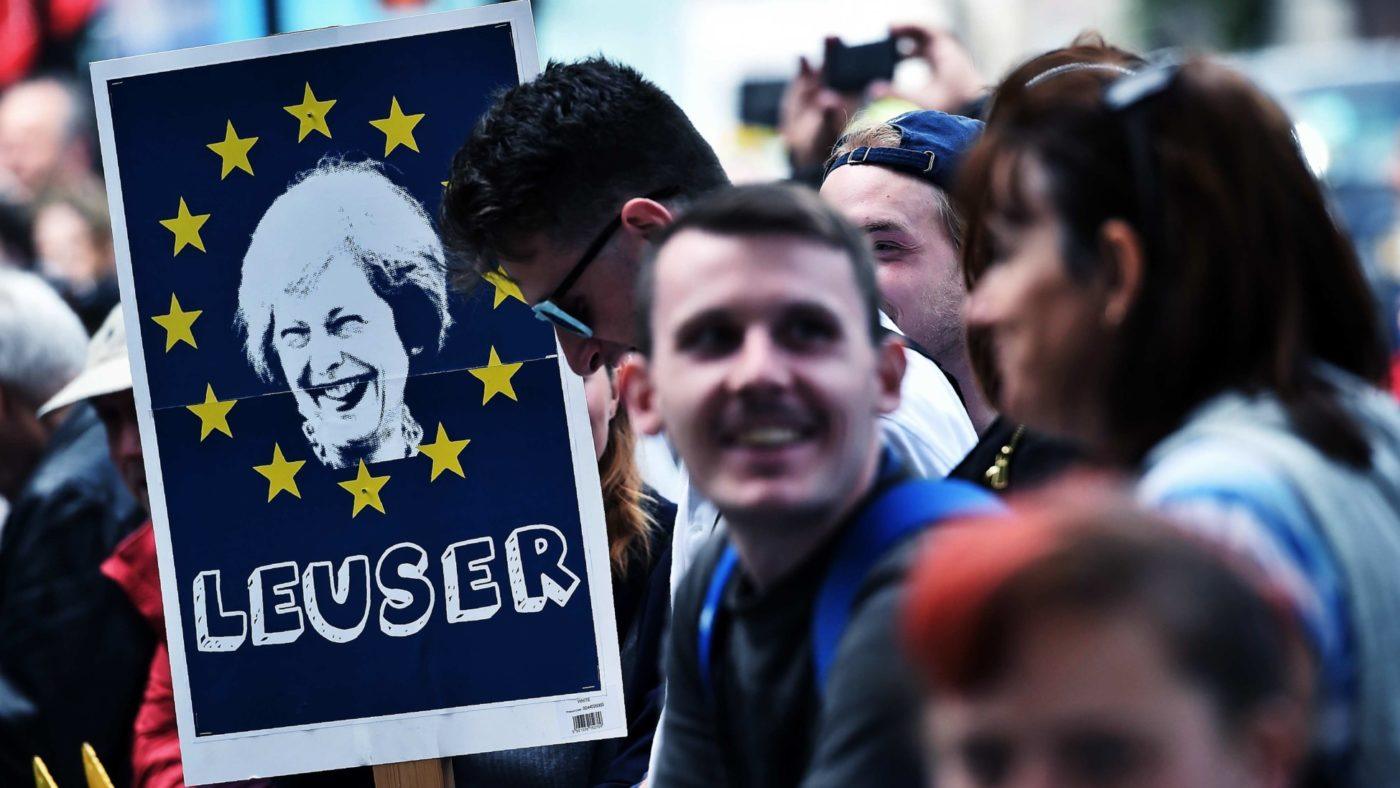Politics might be becoming more unpredictable. But of one thing we can be certain: when the unexpected happens, a certain sort of politician will invoke any new development as vindication of their old prejudices. We’ve seen a lot of this since Thursday.
For those who always wanted Britain to remain in the EU, the dramatic loss of Theresa May’s majority means we are now heading for a so-called soft Brexit. Never mind that the notion of a being half in and half out the EU is a legal nonsense. Or that the offer of being half in and half out is not on the table. All that matters is their soft Brexit – so circumstance must be pressed into explaining why it must happen.
But imagine Mrs May had won a hundred seat majority. Those same soft Brexiteers would be telling us that we were heading towards a soft Brexit precisely because Mrs May had won such a strong hand. She could now afford to ignore the hardliners on the Tory backbenches… blah blah. Or something.
So even though the facts might change, the politicians’ preferred narrative would stay the same.
Its not only the Remainers who behave like this. There are some on the other side who were itching to cry “betrayal”. The new parliamentary arithmetic allows them something to hang their suspicions on.
So if we want to know what happens next on Brexit, we’d best ignore the propagandists on either side. And consider, instead, a few basic facts.
The United Kingdom will leave the European Union in April 2019 – unless the Article 50 process is halted. Doing so would require not only the agreement of all 27 EU member states, but a vote in the House of Commons to undo the Act used to triggered the whole process. Without any such agreement, in a little over 18 months, EU law, legislatures and courts cease to have jurisdiction here.
In the meantime, then, we have an opportunity to craft a deal that extends or re-engineers current collaborative cross-Channel arrangements. As one of the founding members of the Vote Leave campaign, I am all in favour of doing this in certain places. But those seeking to use a new deal with the EU as a pretext for undoing the referendum result would be foolish to overplay their hand.
In fact, unless you happen to be ideologically irreconcilable to Britain’s being an independent country there’s little need to overplay anything, since there’s actually a lot of scope for negotiation.
On immigration, there will be an end to the free movement of people. Even Labour, for heaven’s sake, agrees to this. But there is no reason why we cannot have the free movement of workers. Pay an EU national enough (say £24,000 pa) to preclude them from claiming in-work benefits, and let them come. I suspect that most reasonable Labour and Tory MPs can agree on this. Those who want to cry betrayal will do so anyway because of the colour of passports, or something.
On the so-called Brexit bill, who is going to want to table amendments in the House of Commons, in this age of austerity, demanding we pay more the EU after we have left? Not even Anna Soubry would want that. But we can – Anna included, I hope – agree that as a country we pay our way and will meet some reasonable residual costs.
The really good news, though, is that a narrow majority in the House of Commons will mean that the passage of the so-called Great Repeal Bill is difficult. There will be endless late-night sittings and all manner of wranglings. As our MPs begin the process of transferring EU rules and law into British statues, they will realise the extent to which they all disagree with each other. Free market Tories might be keen to liberalise something; environmentally-aware MPs might try to to ensure higher safeguards.
This is good news because those whom we have elected to Westminster might, for the first time, begin to determine – and debate and disagree on – public policy. With such narrow numbers in the Commons, parliament might actually rediscover those democratic powers it once had, but which had atrophied while we were governed by Brussels.
I had imagined that with a large Commons majority, we would leave the EU in April 2019 – and then at some point in the future – perhaps after our first post-Brexit general election – fire the starting gun on democratic decision-making.
Instead, with narrow numbers in Westminster, it looks as if we will still leave in April 2019, but the mucky business of democracy begins right away.
And the downside to that is?


